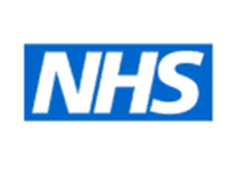"My father wants to go home!" announced Ms. Payne the daughter of one of our patients, Mr Payne who had come in after a heart attack.
"But its Christmas weekend & your father is actually too unwell to go home. If he were to go home so soon, he could have another heart attack", I explain.
"Well, he still wans to discharge himself".
"Right! I thought to myself, "what a right pain in the arse. At this hour, just 1 hour before I go home! "
"alRIGHT MRs Payne, I'll speak to your father."
"When? The parking meter is running & I have a schedule".
Yeah, like I have nothing better to do than pander to your beck & call, I thought to myself. Doesn't she realise that I have 30 other patients? By wasting my time in this way, I can't care for the other patients".
"I'll try to see him as soon as I can", with my best sugar-sweet smile, hiding a very sour face,
I walked up to My Payne who was at his bed, his daughter sitting next to him.
Mr Payne, your daughter tells me that you want to go home today.
"I Do?" answers Mr Payne with a bewildered expression. His daughter then nudges him, which prompts him, "oh yes, of course I do".
Mrs Payne, could I speak to your father alone please.
"I'd rather like to stay please."
"Big pain in the arse! this one!", I thought to myself, I should have just gone home early! Why, Oh! why did I stay behind to do that paperwork!
"Well I have to insist, I want to make sure that Mr Payne is making this decision out of his own free will."
Mrs Payne replied, "Well, go ahead & ask him, I will just sit here."
Ok, no more Mr nice guy, "I can't speak to him like this, please leave or I'll call security"
Mrs Payne storms off in a huff. I'm glad to be rid of this tarantula of a relative.
Mr Payne, what do you want to do?
"Huh? What do you mean?", asks Mr Payne
Do you want to go home & discharge youself then?
"Well, I'm perfectly happy to stay here!"
Fine! So what the hell was that all about? I think to myself
I say to Mr Payne, "Its a shame you're not well enough yet. I suppose your daugther is desperate to get you home so you can be with the family for Christmas."
"Hardly! I'll be alone for Christmas. My daughter is flying off to Dubai for the week. I'll be on my own!"
I feel a twinge a sadness for Mr Payne






 Dr Nick has moved to a new Hospital & new job.
Dr Nick has moved to a new Hospital & new job.










